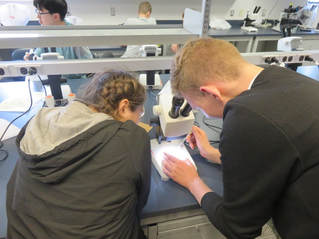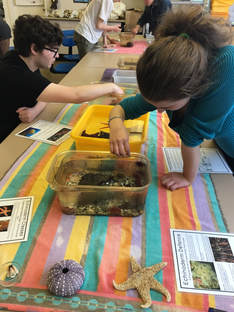
In order to ensure a successful experience in May, bookings were made a year earlier and active planning began in earnest in September. One of the key enabling components to ensure that the trip was accessible for all interested students, was figuring out how our kids could raise the funds necessary to defray some of the costs. The students were an active part of the planning process, looking at various fundraising options and finally settling upon that tried and true proven money-maker – hot dog sales! Now, we all know that this is not the most healthy option, but as a once a week lunch alternative, nestled between two days of our nutritious hot-lunch programme, they decided to give it a go.
So, what did that mean for our students? It meant drawing up a business plan; researching the relative cost of hotdogs, buns, condiments etc. from various sources; setting up a work schedule; and, advertising this new service at school assemblies. It involved collaborative teamwork, commitment, and a strong work ethic, not to mention the mastery of cooking and assembling lunch; counting money and making change; and dealing with a highly demanding clientele.
Thanks to the perseverance and hard work of our students and Tyler Gilowski, their Science teacher, the business was an unqualified success! Over the next six months they raised over $5,000 and were able to cut the cost of the trip in half through their efforts.
So what was the takeaway in all of this? To begin with, instead of just putting their hands out for cash from Mommy and Daddy, they took ownership of the problem. They came together as a group, worked in concert for a common goal, and took pride in the outcome. Week by week, they kept their collective “eye on the prize” and by the time that the trip itself rolled around, they were a solid unit.
I saw the results of this hidden curriculum first hand when I joined them on their trip. They supported one another, worked together effectively in every task presented to them and kept one another engaged and included. There were no social cliques or conflicts. For all of their differences, they were united in a common purpose, no-one was just along for the ride. The rest of the not-so hidden curriculum – being away from home, living in a dorm, eating unfamiliar foods, spending long hours in transit on ferry and bus were all made far more manageable by the easy camaraderie that they had established over the previous months.
Next year, we adults might nudge their successors towards selling a more varied and nutritious menu to their peers, but at the end of the day it will be their problem to solve, their team to build, and their business to run.
And isn’t that what authentic learning is all about?



 RSS Feed
RSS Feed
